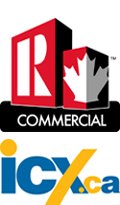Yet More Mistakes When Selling Commercial Real Estate
Not using net leases.
One of the most common mistakes I see with landlords who own smaller properties or who ‘like to do things the old way’, is failing to use net leases and to enforce them when they exist.I guess we need to back up a little.
What is a net lease? Well that depends on who you talk to. The terminology changes from region to region, but what I mean by a ‘net lease’ is this: the tenant pays you a base rental amount out of which you pay yourself and your mortgage company. All of the other expenses, and I mean ALL of the other expenses, are paid by the tenant either directly by being billed by the utilities and tax office or through you in the form of ‘additional rent’ out of which you pay the expenses on the tenant’s behalf.(Don’t forget to factor in a management fee if you are administering the expenses! For a list of common expenses that you should be charging to your tenants, please email me.)
What do net leases do for you and why are they important when you decide to sell the property? Net leases provide you with tremendous security versus gross leases (where all expenses are included) by providing a natural buffer to variable expenses like gas, water, electricity, and even realty taxes which can vary wildly from year to year. In a net lease you know exactly what your bottom line will be in each year of the lease because the expenses are dealt with separately. When you finally decide to sell the property, it becomes much easier for the prospective buyer to analyze the cash flow and hence the suitability of the asset in meeting their investment goals.
But aren’t gross leases easier to explain to tenants? Isn’t it easier to lease space at a flat rate and on a handshake? Maybe. But is the risk worth this small savings in time? Wouldn’t you rather have a tenant that truly understands the cost of operating the building? Would you rather not have your income eroded every year by skyrocketing energy costs and ramped up tax bills?
A gross lease might be easier to explain, but in the end you only hurt your bottom line. At the time of sale this can result in a markedly lower sale price. Risk is commensurate with reward, right? Well if I’m going to take on the risk of gross leases and a variable bottom line, shouldn’t I get a better return on my investment? Of course! How do I get a better return? By paying you less for your property!
As your gross leases expire, you really should consider moving to net leases. Once you do, enforce them! If costs go up this year, do a reconciliation at year-end and charge your tenant for them and allow for those increased expenses in your estimate of the additional rent you’ll need to charge next year. Your cash flow will improve, your stress level will go down and your equity will go up!
Failing to use a Commercial REALTOR®
I’m going to tread carefully here, because, under no uncertain terms would I ever say that your REALTOR® can’t help you with your commercial real estate transactions. Your REALTOR® has worked hard to earn your trust and wouldn’t do anything to intentionally harm you or your business. They’ve worked hard, they’ve trained hard, and they’ve gained experience in their field.
Nice things said. Time to move on.
Would you go to your dentist if you needed to see someone about a sudden bout of chest pains? Of course not, you’d ask to see a cardiovascular specialist at the earliest possible time. While I maintain that there is no such thing as a real estate emergency, the principle is the same; you should see a Commercial REALTOR® when you want advice about commercial real estate and a REALTOR® who specializes in farms when you want to buy a dairy farm and a waterfront REALTOR® when you want to sell the family cottage. When you need to sell your home you naturally seek out the best residential REALTOR® you can find. If they all happen to be the same person, and that person has the training and experience to see you through all of these processes, great! There are a lot of generalists in this business who do an excellent job for their clients.
If you want truly specialized service however, be sure to speak with a number of REALTOR®s. Ask them a few questions: Have you ever done this kind of business before? What additional training have you taken? How long have you been practicing commercial real estate? Do you belong to any commercial real estate associations like the Canadian Commercial Council? Could I speak with some of your past clients? What exactly will you do to market my property differently?
Most REALTOR®s want to do a good job for you, and most will work hard for you. Just be sure you find the one that you can work with and who can demonstrate the expertise you need.
Just don’t be surprised to find that it’s you who’s being interviewed!



